After Qualcomm officially announced a processor Snapdragon 8 Gen 3 The latest processing chip for Android phones, we found it an appropriate opportunity to provide you with a detailed comparison that shows the commonalities in addition to the difference between the Google Tensor G3 processor and the Snapdragon 8 Gen 3.
The difference between Google Tensor G3 and Snapdragon 8 Gen 3
Most Android lovers tend to update their phones almost every year and are always excited to use new phones launched by their favorite manufacturers.
Although the annual development cycle is usually slow, and it's rare for a new release to get a large number of upgrades, faster performance, new camera software tricks, and perhaps longer battery life solidify the idea of upgrading on a yearly basis for most users.
Read also on Review Plus Apple A17 Pro VS Google Tensor G3 Comparison
The year 2023 has been filled with many amazing Android phone launches. From the Galaxy S23 series to the Xiaomi 13 series, Asus gaming phones, the ROG Phone 7, and many others.
But technology does not stop at a certain limit, and this is the appropriate time every year to launch the new version of the leading Qualcomm processor, which is usually responsible for operating most Android phones of the leading category.
During Qualcomm's announcement of the all-new Snapdragon 8 Gen 3 processor for the year 2023, it said some impressive things.
Of course, we cannot display all the information in one paragraph, but there are many upgrades that have occurred in the processor that will enhance the power of central processing and graphics performance on the Android platform and raise the level of user experience to the furthest limits of absolute luxury.
As soon as the processor was announced, we saw a good number of Qualcomm partners announcing the use of Snapdragon 8 Gen 3 with their upcoming phones, which we expect to arrive sooner rather than later. This includes Xiaomi, Vivo, Oppo, Realme, Honor, Motorola, Asus, and many others, not to mention Samsung, which is expected to get an exclusive version of the processor with a higher frequency speed.
The Snapdragon 8 Gen 3 processor delivers improvements across the board. Qualcomm claims that the new processor is faster than the previous generation, with a 30% difference in CPU performance and about 40% in graphics processing performance, as well as efficiency improvements to extend battery life by 10%. This is very great news that makes us very excited and eager to get one of the Android phones that contain the new Qualcomm chip inside it.
But where is Google in all of this? Earlier this month, Google introduced the impressive Pixel 8 series, along with the Tensor G3 processor.
Although Google did not provide any details about the performance or manufacturing source, we expect Samsung to be responsible for the architecture of this processor.
In order not to prolong the introduction any longer, let us delve deeper into these two processors to learn about the similarities and differences that distinguish each from the other.
First: You can only get the Tensor G3 processor by purchasing a Pixel 8 phone

Google manufactures its own processors and uses Samsung's manufacturing technology. There are various reasons why Google manufactures its own processors. If it is not to reduce manufacturing costs and increase profits, it will be in order to impose greater control over the chip and give the company the ability to allocate processor resources to prioritize the implementation of tasks that the company deems to be the most important, even if this comes... At the expense of other factors such as computer or graphics performance.
Google began manufacturing its processors internally since the Pixel 6 series when it unveiled the first generation Google Tensor processor. In 2022, the company launched the Pixel 7 series with the second generation Tensor processor. Earlier in October, the company unveiled the Pixel 8 series, which is powered by the Tensor G3 processor.
Google is putting its full focus on the processor's capabilities in how it integrates with AI and machine learning-based processing technologies. This is very useful in photo and video editing applications and image processing using camera software based on very complex algorithms. This is one of the most important reasons for the success of the camera system on Google phones.
It is usually lower in performance than Qualcomm, Samsung, or even MediaTek processors. But Google has said in previous times that it does not really care about the performance of the processor as much as it cares about what the phone can handle through its artificial intelligence capabilities.
Of course, you can only get the Tensor G3 if you're planning to buy a Pixel 8, Pixel 8 Pro, or Pixel 8a in the near future.
On the other hand, Qualcomm cooperates with various Android manufacturers around the world. You can find Qualcomm chips inside Samsung, Xiaomi, Oppo, Realme, Vivo, Asus, Sony, and many others.
Second: Both chips offer amazing support for the camera system

Google is proud to have the latest camera system integrated with artificial intelligence technologies to improve the photography and video recording experience on the Pixel 8 phones. We have seen how Google phones excel in this field specifically thanks to the Magic Eraser feature, which gives you the ability to remove unwanted objects and objects from photos.
While the Best Take feature can also be used to take a stunning group photo and choose the time to capture the smile of each face within the photo.
Qualcomm did not stand still in front of this achievement, and it seems that it felt a little jealous thanks to the nice camera tricks and tricks based on AI technologies in the Google phone camera system. So, the company says it is offering the world's best and most intelligent camera system by harnessing the latest in AI technology on smartphones.
The company offers the Video Object Eraser feature, which is supposed to work in a similar way to the Magic Eraser feature to remove unwanted people or objects from the image while recording a video.
While the Zoom Anyplace system ensures the ability to support 2x and 4x optical zoom while recording in 4K resolution on smartphones that operate with a 200-megapixel sensor such as the one found in the Samsung Galaxy Ultra phones.
Through Dolby's first HDR image technology, greater color gradations and improvements to dark areas within images will be provided to enhance the beauty and make them appear more realistic.
Read also: Samsung Galaxy S23 Ultra VS Google Pixel 8 Pro Comparison
Third: Both chips were developed with a manufacturing accuracy of 4 nm

Manufacturing resolution, symbolized in nanometers, is an indicator of the amount of physical space allowed for all the transistors of a processor. Chip manufacturers are investing hundreds of millions of dollars to improve the manufacturing architecture and make it smaller to accommodate the larger number of transistors.
The Tensor G3 processor was manufactured by Google using 4nm manufacturing technology, which is supposed to allow a greater number of transistors inside the processor than 5nm manufacturing technology.
We don't know what the number of cores are inside the processor, but some sites claim that it has 9 CPU cores which clocked a top clock speed of 2.6GHz.
Despite the low maximum speed of the processor, it showed very good results during all reviews, and proved to be a reliable processor that can be relied upon to perform all arduous and resource-hungry tasks, including advanced Android games.
The same goes for Qualcomm, as it has succeeded in manufacturing Snapdragon 8 Gen 3 based on a 4 nm architecture. The maximum speed of the processor reached 3.3GHz. The new processor ensures better performance in CPU-based and GPU-based real-world tasks, as well as enhanced power efficiency and reduced consumption by approximately 10%.
Fourth: Snapdragon 8 Gen 3 will be the best choice for gaming enthusiasts
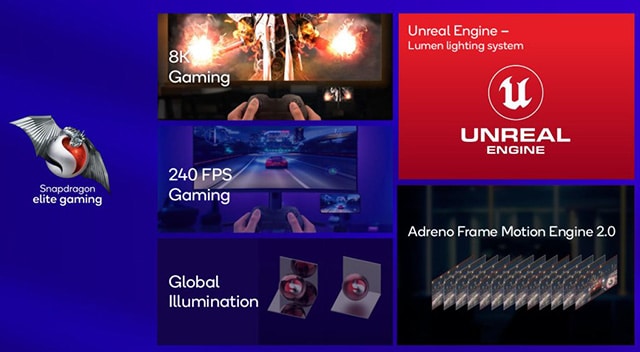
As we mentioned earlier in this comparison, Google does not give much attention to improving computer processing performance on the Tensor G3 processor, even if the graphics processor supports ray tracing technology.
But from reviews, it was found that the processor may throttle during long gaming sessions, which may take more than 30 minutes, even if the game does not contain very complex graphics.
Therefore, the Tensor G3 cannot be considered a class-leading processor when it comes to computing performance, regardless of its AI capabilities. But it is nothing more than a mid-range processor from Qualcomm.
On the other hand, the new Qualcomm processor, Snapdragon 8 Gen 3, comes with accelerated ray tracing technology supported by Global Illumination thanks to the support resulting from the Unreal Engine 5.2.
Qualcomm has stated that the processor is capable of achieving up to 240 frames per second on smartphones that have a 240Hz display. The processor will be able to run phone games up to 8K resolution on external screens through the Snapdragon Game Supersolution service.
In addition to the latest technologies of the Qualcomm processor, the new GPU is approximately 40% stronger than its predecessor in ray tracing performance and 25% better in processing graphic data, with up to 25% energy efficiency.
Without any argument, the Snapdragon 8 Gen 3 processor will remain the best choice for Android gamers. However, phone manufacturers will have to make more efforts to improve the efficiency of thermal cooling inside the phones to benefit from the maximum power provided by the new Qualcomm processor.
Read also: Google Pixel 8 Pro vs Google Pixel 7 Pro: Comparison
Conclusion
It's an easy comparison to come up with one winner because it depends largely on your personal preference. If you're after higher, faster sustained performance, you won't regret choosing the Snapdragon 8 Gen 3 processor.
A phone like the Pixel 8 Pro will still be able to provide more than good performance, but the performance difference between it and any phone powered by the new Qualcomm processor could reach light years.
Getting the Pixel 8 Pro will still be a smart choice if you like cool camera tricks or want the phone at a price that's a little cheaper than the hefty cost that Samsung's flagship phones come at.
Also keep in mind that Samsung is planning to launch the next series with the Exynos 2400 processor in most regions of Europe, Asia and Africa, the only exception being the Ultra model.

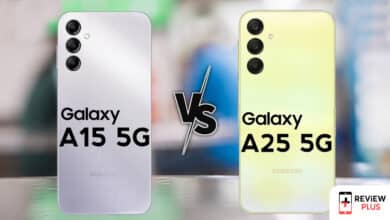
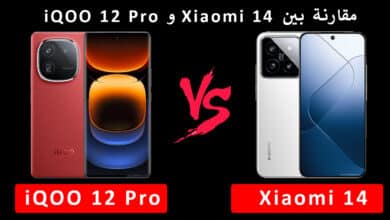
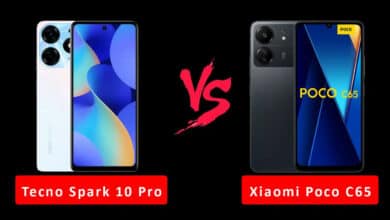
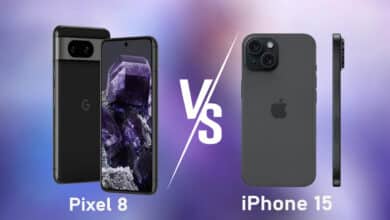
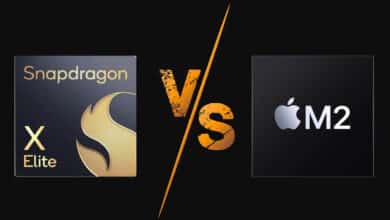
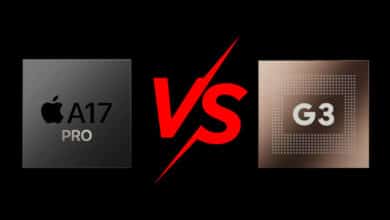
Your writings just offer useful knowledge, and I appreciate that.